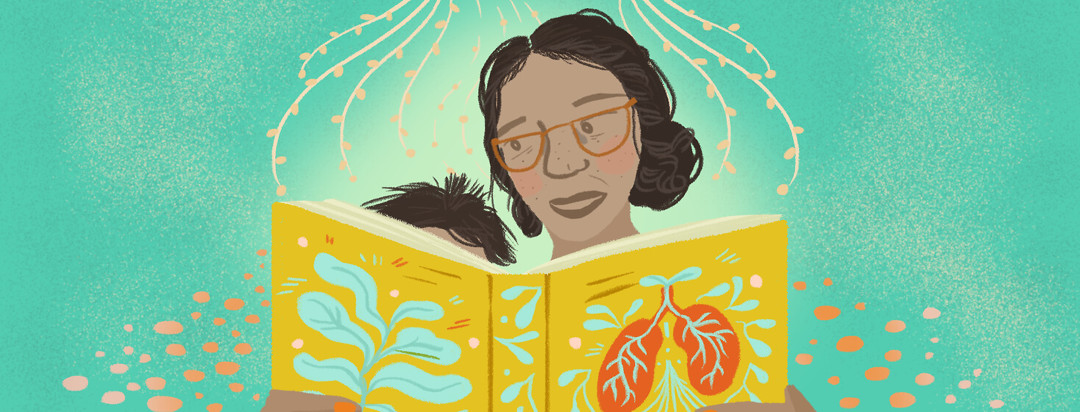Talking To My Young Child About CF (Part 2)
In Part 1 of this series, I shared some practical tips to help my young child begin to process his experience and understanding of cystic fibrosis. We discussed our family’s “age-appropriate honesty” policy and my toddler’s role as my special helper in my care. In addition, I discussed medication safety practices to keep my wiley and curious two-year-old protected at all times in a medical home like ours.
In this article, I'll share more overarching and long-term applications we have introduced in hopes of making his role as a child who has a parent with a chronic illness manageable.
Highlighting the positive during difficult conversations about CF
Even though at times it can be incredibly difficult to identify the positive in such a consuming disease like CF, I swear it exists. The disease itself is not so pleasant, but the unique circumstances it creates can be.
Without CF, we wouldn’t have the same opportunity to cuddle on the couch while I did treatments. Also, we obviously would miss out on a wonderful CF Care Team that loves my son very much. Truthfully, I realize my role as a mother would be less of a wonder without CF. Those are some examples of the lovely things CF has created for our family, and we want to celebrate them.
Exercising gratitude and optimism is similar to strengthening a muscle: it gets easier with practice. Plus, children are naturally better at this than adults, and that’s such a wonderful quality to encourage! Our goal in highlighting the positive is to help him reframe difficult situations to see the good and attempt to be thankful even in hard times with CF. Personally, I believe this is a skill that goes beyond the application of living with parental chronic illness.
Validating tough feelings
My son is still too young to fully express how much CF can really suck, but I know that day will come eventually. Truthfully, a lot of the time CF really can suck - I'll admit it. I’ll be more than willing to agree with him in a couple of years about this matter. Indeed, I want him to know it's totally okay to feel sad, mad, or frustrated at times when dealing with some of the annoying aspects of his mom's disease.
By validating those tough feelings he might experience, I am sending the message that it's okay to not be totally okay 100 percent of the time. (I believe even adults need this reminder occasionally.) I want him to understand it’s healthy to feel a large array of emotions, even the ones that seem negative or unpleasant.
This is why it's important to our family to be honest about what we are feeling and thinking without glossing over the apparent struggles of my chronic illness. Sometimes, CF makes me feel sad, mad or frustrated, but it doesn’t mean it has to ruin my day or drain all my happiness. While processing through the tough emotions of our experiences is important, we don’t want our minds and hearts to stay there indefinitely.
Open pathway of communication
Children are incredibly intuitive by nature, and I plan to continually encourage his curiosity and thoughts about my disease through an open pathway of communication. Particularly, I hope he feels comfortable coming to both my husband and myself about his worries and fears with my health down the road, especially when things become heavy.
This seems to be the most emotionally challenging aspect for me personally when talking about my CF, which already preemptively breaks my heart. Even as I type this post, tears well in my eyes uncontrollably thinking about these future moments. It’s one of the nuisances of motherhood with CF that weighs heavily on me, especially in those dark moments of decline.
As a mother, my natural reaction will always be to protect and shield him from knowing any truth that will cause him hurt or worry. I don’t want that for him; but I want him to be informed. I want him to be involved in decisions and even difficult conversations regarding my cystic fibrosis. I especially want him to feel he has some sense of control when things become turbulent. However, I know it won’t be easy in the years to come when his little face looks up to me with concern, and we painfully keep our promise to him: Yes, mommy’s ok, but here’s what’s going on...
My son helps me in my fight with CF
With honesty and care, my son will know the reality of my disease but beyond that understanding, my deepest hope is that he’ll know how worthwhile he made my fight with cystic fibrosis. If he’s aware of this point at the end of the day, then I did my part in having these difficult conversations about what cystic fibrosis meant in our lives.
Parents with CF, how has the way you approach conversations about CF changed as your children have grown older? Please share your experiences with us!

Join the conversation